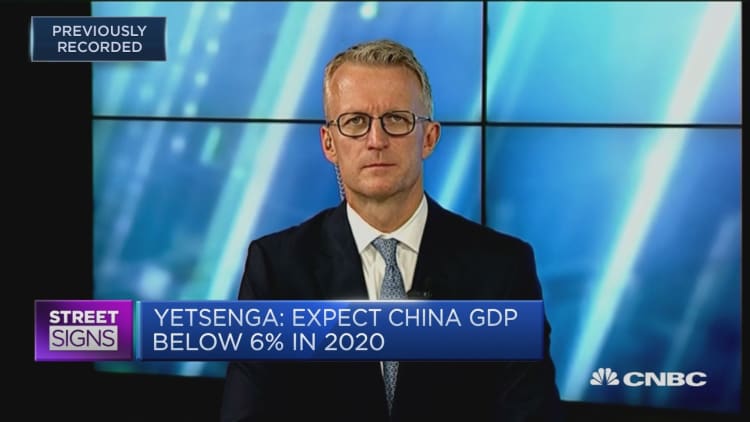
Asian economies need to focus on propping up their domestic economies as China's slowdown looks like it's here to stay, said the chief economist and head of research at Australian bank ANZ, Richard Yetsenga.
"For the region, it's increasingly about having business models which fit a world where China is growing much less quickly, and where trade is much less easy than growth support. That means increasing domestic demand, and that means getting domestic financial systems right," Yetsenga told CNBC on Thursday.
Ten years ago, China began the structural adjustment as its economy grew at 12%, he said, noting it's never gone back to that rate of growth.
"I think we all need to accept that China is slowing structurally — we use the word 'structural' and really, we mean 'permanently,'" he said.
"My expectation is, we say goodbye to (6% growth), it's very unlikely we ever get back to (6% growth). I think this is a permanent slowdown in China," said Yetsenga.
The world's second-largest economy grew by 6% in the third quarter of 2019 from a year earlier — it was the slowest economic growth in about 27 years, according to Reuters.
Monetary transmission in Asia
Businesses in other Asian countries will need to adapt to an environment where China is growing less quickly and trade is more difficult, Yetsenga explained.
If trade improves next year, that's good news for Asian economies, he added.
The problem is that the financial systems in some countries haven't been able to deliver domestic growth — and that's "probably Asia's key issue for 2020," Yetsenga said.
The situation is most prevalent in China, India, Indonesia, and the Philippines, he added.
According to Yetsenga, domestic demand remains hampered because central bank monetary easing is unable to flow back into the economy and stimulate spending.
"Domestic demand still looks pretty hamstrung by this monetary transmission process, which looks pretty gummed up."

